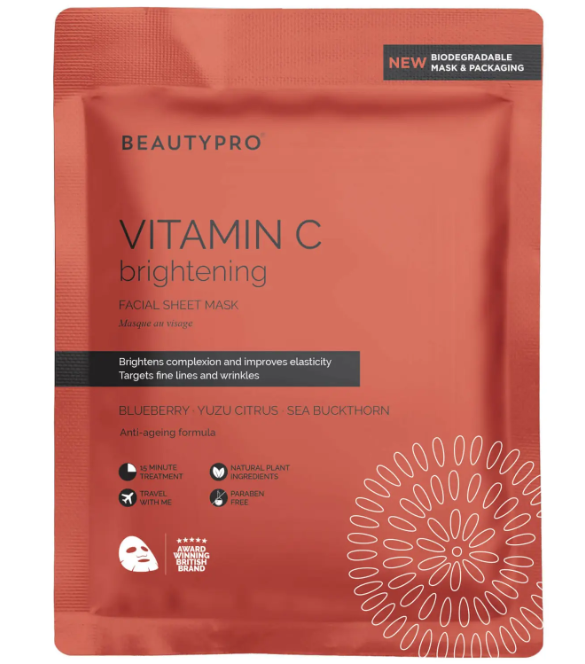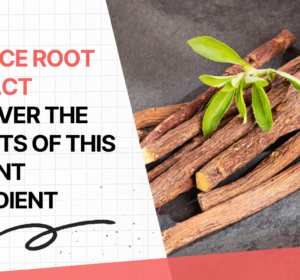If I talk about the benefits of ascorbic acid you may not know what I am talking about. However, you will be very familiar with the term vitamin C. Ascorbic acid is the scientific name for vitamin C. In this post, I will explain all that you need to know about vitamin C.
Why is vitamin C important?
Vitamin C is one of the vitamins essential to the human body. This vitamin takes part in very important metabolic processes, like glucose metabolism, for example. Vitamin C also takes part in the formation of collagen, the repair of tissues and the production of some neurotransmitters.
Most animals can produce vitamin C except a few of them, including some rodents, monkeys and humans. We must, therefore, take vitamin C from the diet. Citrus fruits are rich in vitamin C as well as other fruits like berries, peppers, kale and broccoli.
Vitamin C is an important antioxidant, herein is the importance of this molecule in skincare.

The Chemistry of Vitamin C
Vitamin C was discovered in 1912 and isolated in 1928. It was chemically synthesised in a laboratory for the first time in 1933.
Vitamin C is a furan-based lactone of 2-keto gluconic acid. Its molecular formula is C6H8O6 and exists as two enantiomers (molecules which are non-overlapping mirror images). The L-isomer is the natural isomer found in nature, while the D-isomer can be prepared in the laboratory but has no biological activity.
In the industry, the synthesis of vitamin C starts from glucose. This glucose undergoes different chemical processes to yield vitamin C. Vitamin C is a white crystalline solid soluble in water and alcohol. A solution of vitamin C with a 5% concentration shows an acidic pH, between 2.2 and 2.5.

Vitamin C stability
Vitamin C is a very unstable molecule. It decomposes easily in contact with air, light or heat losing all its properties. When vitamin C is exposed to light, it becomes brownish. It is photosensitive. However, the decomposed vitamin C doesn’t produce any harm to the skin.
The main problem with the oxidised vitamin C is its incapability to penetrate the skin. Therefore, it doesn’t produce any benefits. Vitamin C will stay on the skin surface and, despite it will not produce dark spots or burns, it will not produce any of the benefits either.
The way to avoid vitamin C decomposition is to stabilise it. That means transforming vitamin C into a similar molecule but stable under environmental conditions. This new molecule will penetrate the skin and will be transformed into vitamin C, hence doing its job.

The main forms of stabilised vitamin C are:
Ascorbyl Glucoside
This is a very stable molecule which is very easy to prepare (from vitamin C and glucose). Once inside the skin, the hydrolysis of ascorbyl glucoside produces vitamin C.

Magnesium Ascorbyl Phosphate (MAP)
MAP is a vitamin C derivative soluble in water. It is obtained by the reaction of ascorbic acid with magnesium phosphate. This form is not as powerful an antioxidant as vitamin C and, therefore, should be applied at higher concentrations.

Ethyl Ascorbic Acid
This is an etherified derivative of vitamin C (a vitamin C molecule bound to an ethyl group through an ether bond). This molecule is very stable and soluble in water and in oil. The skin can easily absorb this molecule, which is later transformed into vitamin C.

Ascorbyl Palmitate
This is a very stable and oil-soluble form of vitamin C. It is stable at low pH (pH<5) and it is very easy to synthesise. This derivative shows excellent skin penetration abilities.
Ascorbyl palmitate is an ester from ascorbic and palmitic acid. As a curiosity, ascorbyl palmitate is also used as a food additive and you can find it as E-304.

Cosmetics properties of vitamin C
Vitamin C is a very important molecule in any skincare routine. That is because vitamin C has amazing properties:
It is an antioxidant and protects against free radicals. This is the main property of vitamin C. We are continuously exposed to free radicals (from pollutants, sun radiation, etc) which can cause severe damage to our skin. Among others, free radicals can promote skin dullness, wrinkles, fine lines and even cancer.
Vitamin C acts by scavenging free radicals. That means vitamin C will react with free radicals avoiding their reaction with the skin. It is, therefore, protecting the skin.
Promotes collagen synthesis. Collagen is very important for the skin, but its production decreases with age. Vitamin C plays an important role in the collagen synthesis. It is a cofactor of some enzymes responsible for catalysing the hydroxylation of the amino acids proline and lysine. This reaction is key in forming the triple helix conformation of collagen.
Lights dark spots. Vitamin C takes part in melanin synthesis. It inhibits melanin synthesis through the downregulation of tyrosinase enzyme activity. Therefore, it helps to reduce dark spots and hyperpigmentation.
It is a photoprotector. Vitamin C doesn’t protect you against the sun. You cannot use vitamin C as a sun protector, but vitamin C helps to protect against the free radicals produced by sunlight.
Prevents DNA damage. This property is a direct consequence of the antioxidant abilities. The protection against free radicals helps to protect against DNA damage.
There are other benefits which are consequences of all these properties. Vitamin C delays skin ageing promotes skin hydration and improves skin texture.

Type of vitamin C products
Nowadays we can buy vitamin C in almost any form, from creams to sheet masks. Each form has some benefits, buy the form which works better for you.
- Cream/lotion. Indicated for different skin types, depending on the excipients.
- Serum. Contains a high active ingredient concentration and has a light texture. Serums can penetrate the deepest skin layers.
- Ampoule. Contains very high concentrations of vitamin C. Ampoules are very strong and produce a very quick effect.
- Sheet mask. The occlusive way of the application allows better penetration of the product into the skin.
- Peeling. Peelings eliminate dead cells and apply vitamin C in one go. The concentration of vitamin C is very high. Normally peelings contain other active ingredients like moisturisers, sun protectors, vitamin E, and niacinamide,…
- Cleansing gel. Cleansing gels with vitamin C are ideal for people with dull skin.
How to use vitamin C
There is a debate about if you should apply vitamin C as part of your morning or night-time routine. I like to apply it in the morning when my skin is exposed to free radicals that may cause cell damage. I apply it daily (though you can use it only every other day) under my moisturiser and always apply sunscreen as a last step.
The dose of vitamin C available depends on the use intended for. If the product is an antioxidant, vitamin C concentration should be 0.1-1%. However, if the use of the product is photoprotector, the dose is higher, 3-5%. The maximum dose in over-the-counter vitamin C products is 20%.
Vitamin C is a safe molecule. However, as with any other ingredient, high concentrations of vitamin C can irritate the skin.

Vitamin C compatibility and incompatibility
Any skincare ingredient has “friends” and “enemies” and vitamin C is not an exception. It is frequent to find vitamin C in combination with some ingredients, while you will never find it in combination with other ingredients.
Vitamin C works better in combination with vitamin E, ferulic acid or hyaluronic acid. Nowadays it is very frequent to find vitamin C in combination with turmeric, another antioxidant.
On the other hand, you should never combine vitamin C with the following ingredients:
- Benzoyl peroxide. This ingredient is very common to treat acne. It will react with vitamin C and they will cancel each other, so you will not get any benefit from them.
- Retinol. The combination of vitamin C and retinol can produce skin irritation and redness. Both ingredients combined increase the risk of UV damage. If you want to use both ingredients, apply vitamin C in the morning and retinol in the night skincare routine.
- AHA/BHA. Alpha-hydroxy acids and beta-hydroxy acids are both acids, as well as vitamin C. Applying too much acid to your skin may produce irritation.
What about the combination of vitamin C and niacinamide?
It is a general belief that you should not mix vitamin C with niacinamide. Both ingredients can react to give niacin, which is a yellow compound and can stain the skin.
Despite this reaction can really happen, recent studies found that it needs a high amount of heat over a long time to produce niacin. It is therefore safe to use them together. Actually, the combination of vitamin C and niacinamide is really powerful if you want youthful skin.
Final considerations
Any antioxidant will decompose in the presence of light and air. Store vitamin C products in dark bottles in a fresh and dry cabinet protected from light.
If you are using vitamin C for the first time start using products containing a low concentration. Do always a patch test.
The best way to use vitamin C is over clean and dry skin. Apply a moisturiser after vitamin C application to help its penetration into the skin. Always apply sunscreen as the last step in your morning routine. Exfoliate your skin at least once a week.
Use a vitamin C sheet mask only once a week and take a salon peeling maximum every two weeks.
My favourite vitamin C products

The Ordinary – Ascorbyl Glucoside Solution
Ascorbyl Glucoside is a water-soluble derivative of Vitamin C. Arriving in a serum form, the vitamin-packed solution is stable and effective, whilst also being comfortable to use.

Revolution – Vitamin C Glow Body Scrub
Saturated with a potent blend of Salicylic Acid and AHAs, the formula strives to exfoliate the skin, revealing a smoother surface. Also infused with Vitamin C, a multitalented ingredient, the formula helps to brighten the skin, combatting hyperpigmentation

L’Oreal – Pure Vitamin C Serum
Developed with the purest form of vitamin C, the Revitalift Clinical 12% Pure Vitamin C Serum by L’Oréal Paris visibly brightens the skin and diminishes the look of pores, fine lines and textural irregularities.

Garnier – Brightening, anti-dark spot Serum
Enriched with 3.5% vitamin C, the powerhouse formula works to reduce the appearance of dark spots while helping to illuminate your skin. Niacinamide helps to deeply hydrate and promote skin elasticity while salicylic acid works to gently remove impurities.

BeautyPro – Collagen Sheet Mask with Vitamin C
The face mask delivers a surge of moisture to help plump and brighten skin’s appearance.
A plant-based blend of blueberry, yuzu citrus and sea buckthorn to visibly brighten skin, minimising the look of redness and uneven skin tone.
Vitamin C is a versatile ingredient which will be a game-changer in your skincare routine. If you are not already doing this, include vitamin C in your routine and you will feel and see the difference soon.


Bear in mind that some of the links in this post are affiliate links and if you go through them to make a purchase I will earn a commission. Keep in mind that I link these companies and their products because of their quality and not because of the commission I receive from your purchases. The decision is yours, and whether or not you decide to buy something is completely up to you.




